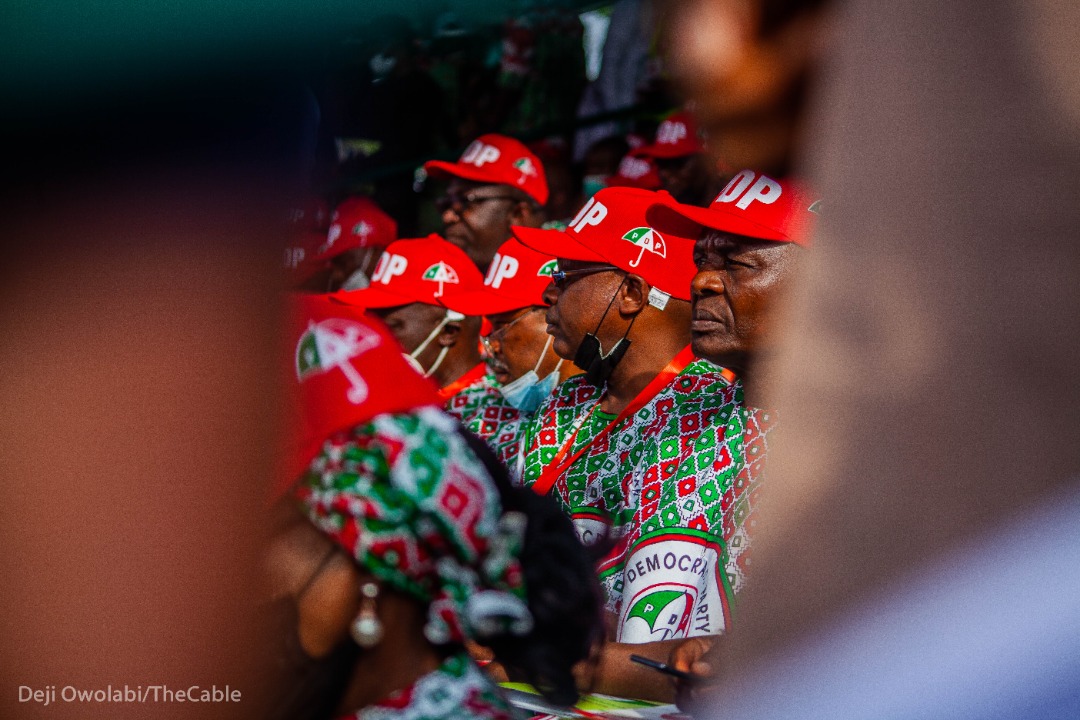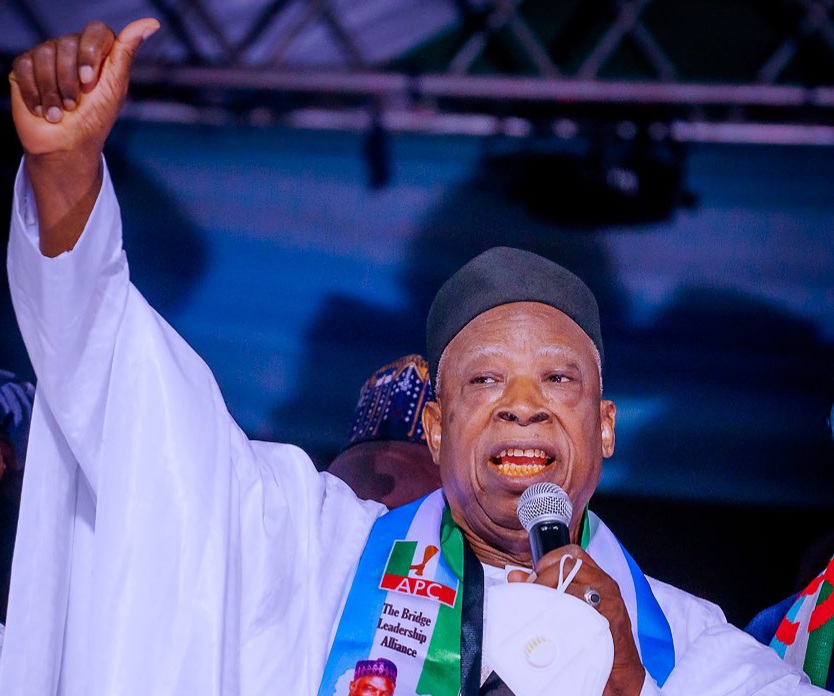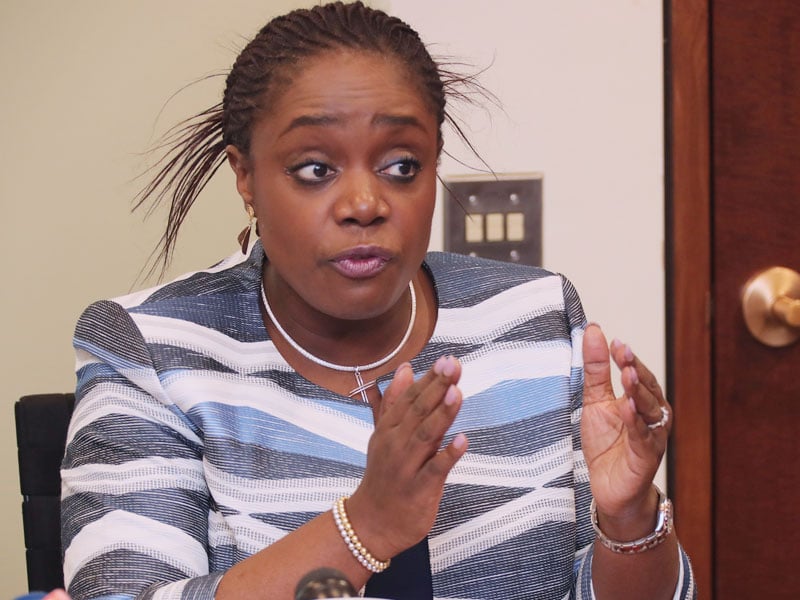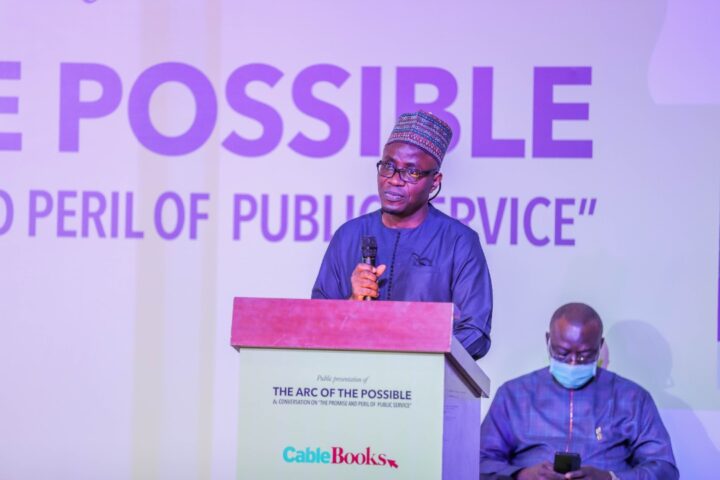In the late hours of March 26, with thousands of delegates gathered at the Eagle Square in Abuja, the federal capital territory, Abdullahi Adamu was elected as the national chairman of the All Progressives Congress (APC) through the voice-vote system.
It has been nearly two years since the APC had a national working committee (NWC). The ruling party has not had a substantive NWC since June 2020 when the one led by Adams Oshiomhole, former national chairman, was sacked by the party’s national executive committee (NEC).
The NEC appointed Mai Mala Buni, Yobe governor, to lead a caretaker committee which was tasked with organising the national convention which produced Adamu, a consensus candidate, as the substantive national chairman of the APC.
The party was fraught with internal crisis over the choice of consensus candidates for its national positions, and leadership of the caretaker committee. It took the intervention of President Muhammadu Buhari to bring calm to aggrieved members of the party.
Advertisement
All eyes are now on Adamu, 75, to see to it that the APC successfully conducts its primaries and that the ruling party retains power in the 2023 elections. Many are convinced that Adamu is more than equal to the task as he is a glass of old wine in the foray of politics and party management. He was a two-term governor of Nasarawa state from 1999 to 2007 and is currently the senator representing Nasarawa-west in the national assembly.
BUHARI’S ANOINTED CANDIDATE

Advertisement
Buhari had said he preferred that the party’s national chairmanship slot be zoned to the north-central and subsequently anointed Adamu as the consensus candidate for the position of the national chairman of the APC.
The president had held a meeting with the APC governors on Wednesday, after which Atiku Bagudu, chairman of the Progressive Governors’ Forum (PGF), said the governors would support Buhari’s preferred chairmanship candidate.
Buhari’s choice of Adamu has been a subject of controversy with questions on if the president’s preference will not seem like an imposition.
On Friday, six aspirants for the office of the national chairman withdrew from the race for Adamu.
Advertisement
Apparently, there is a mutual love between Buhari and Adamu, who is a staunch Buharist.
Speaking to Daily Trust in 2020, Adamu admitted that he is true, a “defender” of the president.
He said: “Yes, I have been a defender of the president and would continue to do so. But our fault is that we are too trusting. The average northerner is too trusting and submissive to constituted authorities. We are not subversive to constituted authorities by nature, tradition and attitude.
“That is why sometimes we are taken for fools, but we are not foolish. It is a matter of loyalty; we are too loyal to think about sabotaging constituted authorities. We are too loyal to do so because it is not in our character.”
Advertisement
In December 2021, Adamu told members of the national assembly not to make laws that promote personal interests following Buhari’s decision to withhold his assent to the electoral act amendment bill.
FOUNDING MEMBER OF PDP
Advertisement

Adamu, who is now the national chairman of APC, was a founding member of the Peoples Democratic Party (PDP) as far back as 1998. He served as governor of Nasarawa state on the platform of the opposition party and also clinched his senatorial position as a member of the PDP in 2011.
Advertisement
After the end of his two-term governorship, Adamu became secretary, Board of Trustees (BOT) of the PDP.
He defected from the PDP in 2013 and joined the APC less than a year after the party was founded. Adamu was a member of the New PDP that fused into the APC.
Advertisement
CORRUPTION ALLEGATION

In March 2010, the Economic and Financial Crimes Commission (EFCC) filed a 149-count charge against Adamu and 18 others, including former Nasarawa state officials and contractors, over the allegation of N15 billion fraud.
The former governor and his co-accused, however, filed a motion countering the charges on the grounds that since the funds alleged to have been embezzled belonged to the state, the EFCC was out of line in its investigation. The defendants also pleaded not guilty to the charges.
But David Okorowa, judge of the federal high court in Lafia at the time, ruled that Adamu would stand trial as he had a case to answer.
As of 2013, the defendants had filed a suit at the court of appeal, challenging the decision of the lower court.
Not much was heard of the matter afterwards, but the former governor had said the case was struck out in 2016.
In the eighth national assembly, Adamu was removed as the leader of the Northern Senators Forum (NSF) over allegations of embezzlement of funds.
Meanwhile, in 2017, the EFCC said it would arraign Mohammed Nuraini Adamu, son of the senator, for alleged N92 million fraud.
Like in the case of his father, not much has been heard of Nurainu’s case afterwards.
OPPOSED ZONING OF PRESIDENCY

With the next general election in 2023, there have been suggestions in political circles that the presidency be zoned to the south-east, since the region has never held the position since 1999.
However, Adamu argued that there is no constitutional provision for zoning and that anyone seeking to be president can only achieve that by being voted into office.
“Nowhere in the Nigerian constitution does it say we should zone any public office. There is federal character, but not that parties must zone positions for presidency during election,” he said in September 2021.
“Yes, somebody is saying the east has not had a president. I agree and I sympathise. But the constitution says you can only become president through the ballot box.
“We have been saying it during elections that every vote must count. So, why do you want to zone?”
EDUCATION AND BACKGROUND

Adamu was born on July 23, 1946, in Nasarawa state. He started work in 1967 with the Electricity Corporation of Nigeria and in 1971, he joined the Northern Nigeria Development Corporation (NNDC) Kaduna.
He joined AEK, a consultancy firm, in 1973, where he was project manager for the construction of Durbar Hotel and Murtala Mohammed Square, Kaduna, and in October 1975, he was appointed the executive secretary of the Benue/Plateau Construction Company by the Benue/Plateau State government. From February 1980 to September 1983, he was chairman of the Benue Cement Company, Gboko.
In 1987, he enrolled in the part-time degree programme of the University of Jos, obtaining an LLB (Hons) in 1992. He was called to the bar in December 1993.
Adamu entered politics in 1977 and was elected to the constituent assembly, which drafted the constitution for Nigeria’s short-lived second republic. He was a pioneer member of the National Party of Nigeria (NPN), the first secretary-general of the NPN in Plateau state from December 1978, and chairman of the NPN in the Plateau from 1982 to 1983, when military rule began again.
In 1994, he was appointed to the National Constitutional Conference by the Abacha administration. In March 1995, Adamu was appointed a minister of state of works and housing ministry, holding the position until November 1997.
Add a comment







